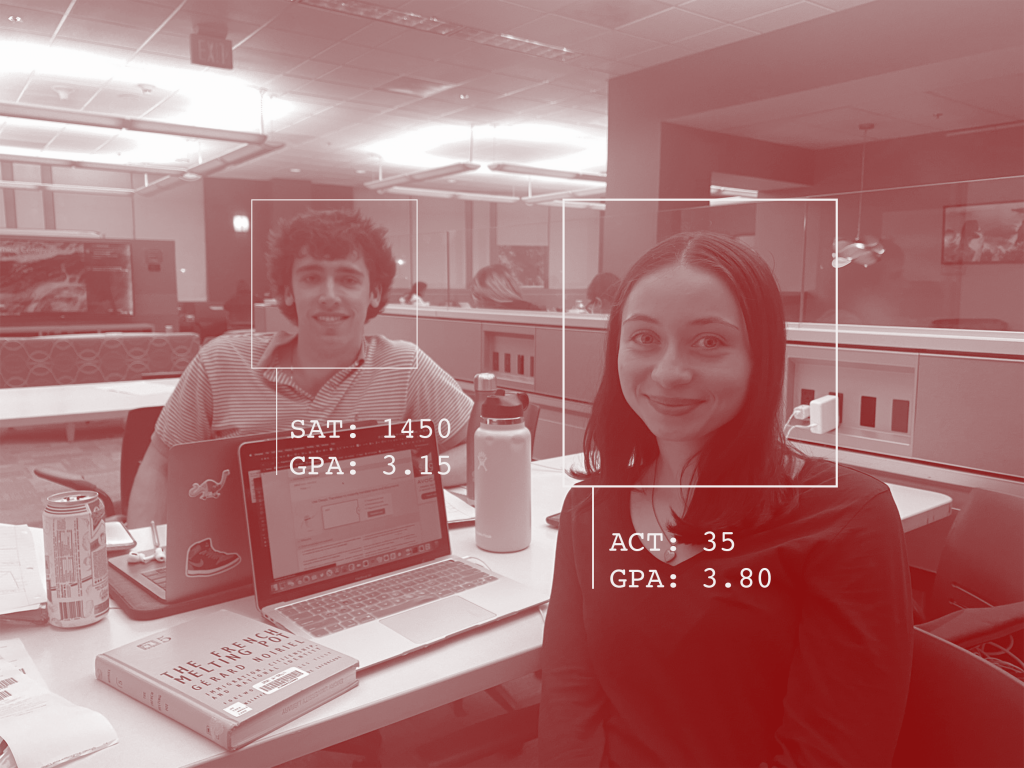
(Emory Wheel / Anusha Kurapati)
Valerie is a junior at Emory, and she excels across the board. She set herself a lot of big goals as a first year, but all of the pieces have fallen into place. She aced her MCAT early, secured a lucrative gap-year job in San Francisco, maintains a GPA of 3.9 out of 4, has six very close friends and even kept off the so-called Freshman Fifteen. Let’s say that she also finds her classes, clubs and prospective career fulfilling and that she sleeps eight hours every night — she’s just that good. But every night, Valerie feels her breaking point coming closer and closer. Her life seems to her incomplete, even wasted, and she’s burned out and miserable. How could this be true? Is she just wrong?
Valerie may not be a real Emory student, but if you are, I’m willing to bet that her story resonates with you at least a little. It certainly does with me, because she’s not flourishing. By that, I mean that she’s not living a life that a rational, informed person would want above all else. Pleasure and a few good days here and there have nothing to do with this; to flourish is to live a life you would deeply want after reflecting on it with accurate information about yourself.
But why do neither Valerie nor so many of the rest of us have this? Any satisfying answer to that has to consider our environment. In the 21st century, that environment is shaped by data. Communication technology, information and numbers dominate, even suffocate, our daily lives. Look at yourself and your friends at Emory. What do you worry about? Your GPA, MCAT scores, weight, Instagram followers, height and prospective salary? Odds are that at least one of these consumes you some of the time. However, all of them point to one enormous obstacle to flourishing in the 21st century: the excessive quantification of our lives. By and large, numbers control and dehumanize us. But, if you use them to figure out what you should value in life and how rather than locating value in them, they can also help you flourish.
Numerical standards hurt us in many ways. Some, like salary and athletic performance, are moving targets, “enoughs” that will never be enough. But what really distinguishes numerical standards is their reduction of a person’s life narrative to a number devoid of emotion and history. By and large, we don’t reason our views into existence using hard, impersonal data; we feel them, and that irrationality grounds us in our humanity. Basing your success or failure on a number doesn’t leave room for irrational human worth.
So much for what we value. What about how we value it? For starters, most of these numbers are means to a static end. I was guilty of this in high school — staying below a certain weight, I thought, would tamp down feelings of inferiority and prevent people from looking down on me. A perfect ACT score was going to get me into a great college where people would finally be like me. Like the distance I ran in a week, these and so many numbers seemed like ends in themselves. What a joke.
If valuing this way made me so miserable, why did I and so many others do it? The short answer: people use easy numbers to define our goals and ends for us. Grades, test scores, a good medical school, a tight-knit friend group of a particular size and so on are all common goals that many people simply adopt because their families, schools and cultures instill them as such. Without good self-knowledge, a critical orientation and a willingness to use them on your own terms, it’s very easy to treat huge periods of life as means to a few distant ends that might not even be satisfying.
This problem is neither rare nor surprising, because we have access to more data about ourselves than at any time in human history. Too often, we use it to set standards for ourselves without really thinking about why we value those standards or the end goals to which we think they’ll lead us. The rise of health-tracking apps is a useful example. They provide us data on everything from weight to stress, but many people use it to set standards for activity, such as steps per day, to reach goal weights without criticizing their choice of standards or the value they place on their goals.
But that wealth of data is also key to how we can escape the quantification trap. Turning a critical eye on ourselves requires accurate information, and well-measured data is ideal for that. In other words, flourishing in the Information Age should begin with radical, autonomous and informed skepticism of what we value. Quantitative information about ourselves can help us make that happen and live up to our values and treat them as provisional. This semester, I used my watch’s sleep tracker to find and hold myself to a sleep goal in order to feel rested and keep my mind sharp. When I failed, I didn’t just regret my errors or question my worth. Instead, I used what I learned to make a new plan on my own terms.
What might this look like for you? Maybe you value physical fitness. If so, you might ask yourself what is truly important to you there and find that, rather than being below a certain Body Mass Index (BMI), you value a confident disposition and feelings of vitality. How might you get there? If you know that you’ve felt a little better on both counts after walking 10,000 steps each day in the past, you might plan to act in accordance with those two values by walking that much every day. If you fail to meet that standard, use a calendar, your memory and the health data from your phone to learn why. If you do meet it but don’t feel much better, use that data to pick a better standard or reflect on what might make more sense for you to value.
If BMI and physical vitality doesn’t work for you, think about it in terms of volunteer hours and meaningful activity, grades and achievement, Instagram followers and social interaction or anything else. This is a method of thinking, a way to live as an autonomous human being in internal harmony. It’s flourishing.
Don’t work for the numbers in your life; make them work for you. Once you stop treating numerical standards as means to static ends that other people have given you, you can ground yourself in reality and think independently. With all this in mind, you can use the numbers in your life to learn what you should value and how you can get there.
Your life is too important for you to fritter it away in a miserable, numerical fantasyland planned by other people. Your four years at Emory don’t have to be a way station for you to check some quantitative boxes; they can be four of the freest, most formative years of your life. Don’t waste them.
Ben Thomas (23C) is from Dayton, Ohio.
Ben Thomas (23C) is from Dayton, Ohio, and he majors in comparative literature, political science and Russian, East European and Eurasian studies. He currently chairs the Wheel’s editorial board, and he has also served as a managing editor at both the Wheel and the Emory Undergraduate Research Journal, an Interdisciplinary Exploration and Scholarship (IDEAS) Fellow, a Center for Law and Social Sciences research fellow, a teaching assistant in five courses and Chief Justice of SGA’s Constitutional Council. He has published research in literary studies and educational policy, and he speaks Russian and German. Thomas has also interned with Emory’s English department, the Carter Center, a congressional campaign and California’s Environmental Protection Agency. After graduation, he plans to earn an advanced degree in Slavic studies and teach at the post-secondary level.





